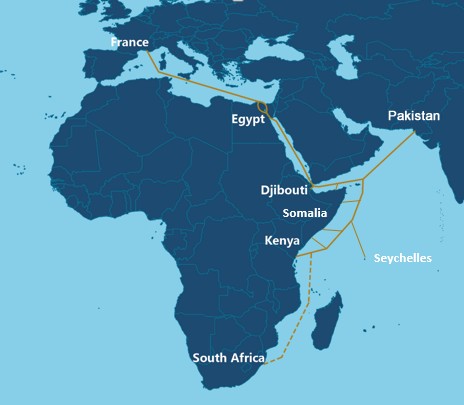Currently, four of the seven submarine cables used by Pakistan for internet travel through India
China will lay the last remaining cross-border fiber optic cable in Pakistan, which is a part of the broader Chinese Belt and Road Initiative (BRI), creating the Digital Silk Road, reports suggest.
The fiber cable will link to the Pakistan East Africa Connecting Europe (PEACE) submarine cable in the Arabian Sea, to service countries participating in BRI, and Europe.
“The Mediterranean section of the cable is already being laid and runs from Egypt to France. The 15,000 kilometer-long cable is expected to go into service later this year,” it was reported.
The project will cost around quarter of a billion dollars. “The $240-million project, which is in partnership with China’s Huawei Technologies, was approved by the government last week.”
Pakistan is also laying new fiber optic cables from Khunjerab Pass to Islamabad, under the CPEC framework. The fiber optic cables will be laid from Islamabad to Karachi and Gwadar in the next phase.
The current links that Pakistan uses have seven submarine cables, out of which four come through India. The alternative link will allow Pakistan lesser internet outage risks due to the extra link and will also reduce the exposure to India.
The Belt-Road Initiative (BRI), also commonly referred to as the new Silk Route is an ambitious multi-trillion-dollar undertaking announced by Chinese President Xi Jinping in 2013. The project aims to enhance connectivity and cooperation between East Asia, Europe, and East Africa. It will have a significant positive impact on global trade and as per industry expert estimates, will reduce the trading costs in half for the countries involved.
The report stated that some BRI projects have been negatively affected by the coronavirus pandemic and debt crises in partner countries, including a $6.8 billion railway project in Pakistan. “Part of Beijing’s response has been to step up digital projects and the development of communications infrastructure.”


